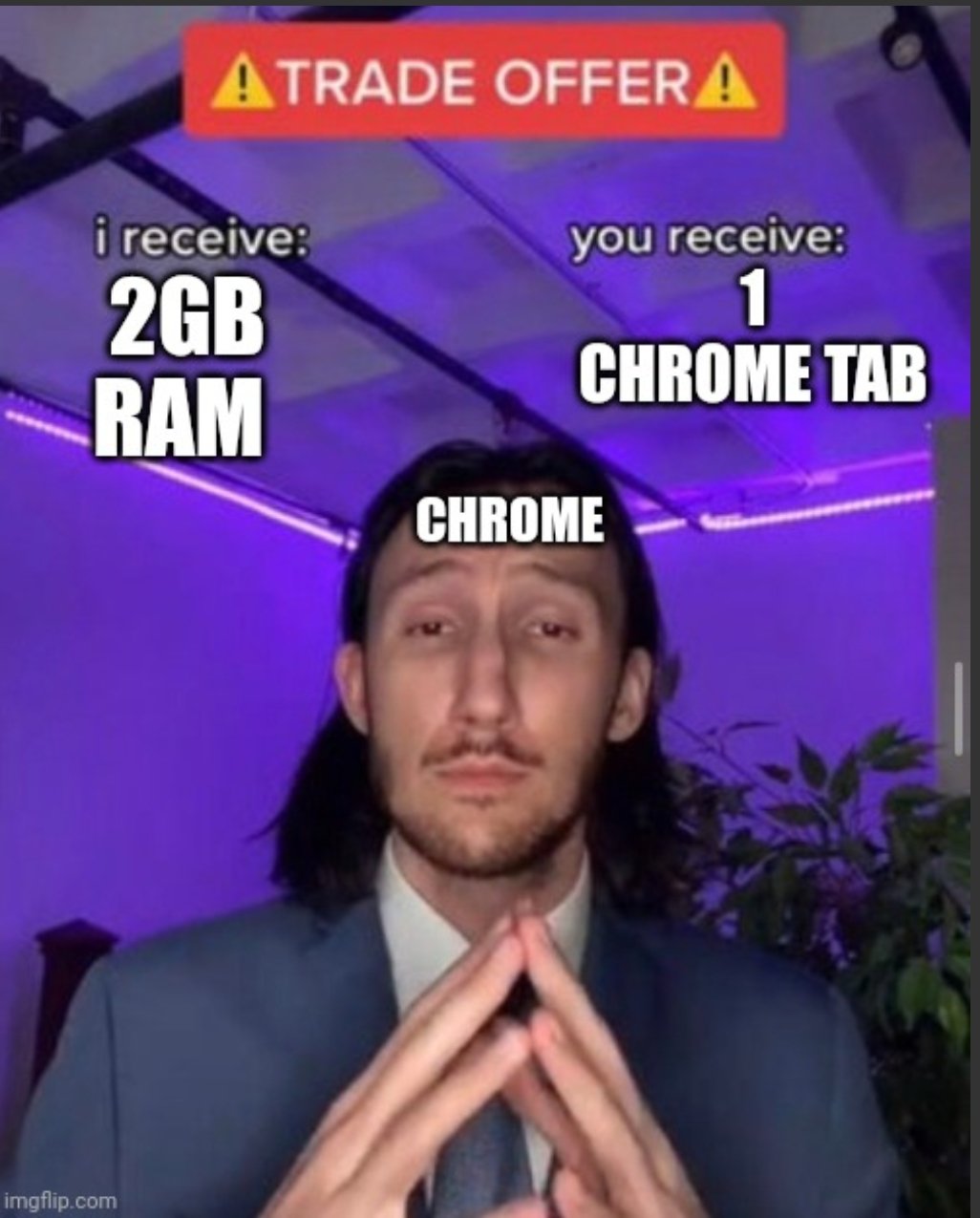this post was submitted on 14 Jun 2024
542 points (95.9% liked)
Memes
44932 readers
1998 users here now
Rules:
- Be civil and nice.
- Try not to excessively repost, as a rule of thumb, wait at least 2 months to do it if you have to.
founded 5 years ago
MODERATORS
you are viewing a single comment's thread
view the rest of the comments
view the rest of the comments

They can be slow to adopt changes. I think the Mozilla foundation getting more funding, staffing, and refocusing on their browser would be the better solution.
While Chromium is an open source project, it is still developed and maintained by Google. For something as important as a web browser, I think it's imperative that there's an option outside of their control.
Sure, but Google has no control over any forks of Chromium. They can't control Edge, or Brave, or Vivaldi, or a hypothetical Mozilla fork. And if those other forks want, they can collaborate together to maintain any features they want to have that Google themselves don't want.
Like, yeah, more funding for Firefox would be the ideal case. But that's not something Mozilla really has the ability to effect. They can choose what engine they're using. And using Chromium would allow them to essentially "steal" the work Google has put in, while not preventing them from changing stuff that they don't like. In fact, in some respects it would help them even with that stuff they don't like from Google, since they can pool resources with other privacy-forward browsers like Vivaldi and Brave. I honestly see it as win-win.
Sorry but that's not how it goes, Google can exert control on forks by increasing the difficulty of maintaining changes. The forks have a vested interest in staying compatible with upstream to benefit from Chromium changes over time, which unfortunately means they avoid making any deep changes to the code. None of the Chromium forks are hard ones, unlike Chromium itself which was a hardfork of Apple's webkit, which in turn was a hard fork off KDE's KHTML.
Also, Mozilla should DEFINITELY NOT adopt Chromium. We need diversity in web browsers, the idea is that by having different user agents we give the user more bargain power over how they want to browse the web. Remember, Google, Microsoft and Apple are NOT your friends, all they want is to ransack everything and increase their shareholder values. If they can turn the web proprietary and fully locked down, they will.
For now. If Firefox became a Chromium fork, ideally it would stay that way. But if Google did make things too hard in the way you describe, then I would suggest Firefox, Brave, Vivaldi, etc. should share a sort of medium-hard fork of Chromium. Keep their own track with features they need, but keep it close enough that the basic rendering engine can still be merged in from work Google does.
That's an ideological position. I don't agree that there's any inherent value in the underlying browser engine being diverse. If anything, I think it's useful for it to be consistent and predictable.
As I write this, I'm talking myself into a slightly different position. Maybe they don't need to fork Chromium, but it would be valuable to dump Gecko in favour of Blink. I don't actually know what Chromium gets you besides Blink (and V8, which I lump together with Blink because for the same reasons, I think it would make sense to unify around). Stick with Blink & V8 to let Google to the work on the rendering side (while still being able to contribute back yourself where necessary), while maintaining your own browser and extension ecosystem. So web developers get a single platform to develop against, users get the full experience of any site they visit regardless of their browser, and Mozilla can maximally utilise their development resources in building and maintaining features that differentiate them.